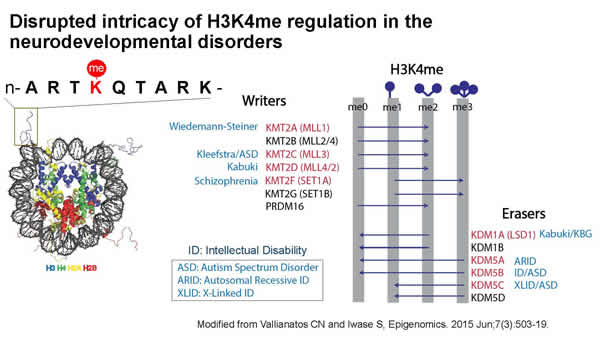A Mendelian trait is an inherited phenotype influenced by a single locus. Perturbations of these loci can result in pathogenic phenotypes, referred to as Mendelian disorders. Studying these perturbations in model systems can elucidate the underlying genetic mechanism of the trait, providing insight into how the locus functions in the pathophysiology of the disorder.
Human Genetics faculty research focuses on identifying and functionally validating novel disease genes using a variety of model systems. Computational analysis of association studies is being used to investigate psychiatric disease and genetic basis of behavior (Burmeister). Sequencing analysis in mouse models is revealing genetic mechanisms of disease in auditory systems development (Kohrman, Martin), as well as blood clotting and coagulation factors (Ginsburg). Mouse models are also critical in our studies of quantitative traits in complex disease (Burke) and caudal birth defects (Keegan). There are also many ongoing projects investigating genetic pathology of neurological disease, ranging from the role of sodium channels in epilepsy (Meisler) and epigenomic contributions to intellectual disability (Bielas, Camper, Iwase, Kwan) to tRNA synthetase-mediated peripheral neuropathies (Antonellis).
Another important focus of Mendelian disorder research is to investigate genetic variants that may disrupt the stability of the genome, particularly during replication and DNA repair and the role this disruption may play in human disease (Glover, Kitzman, Sekiguchi).













